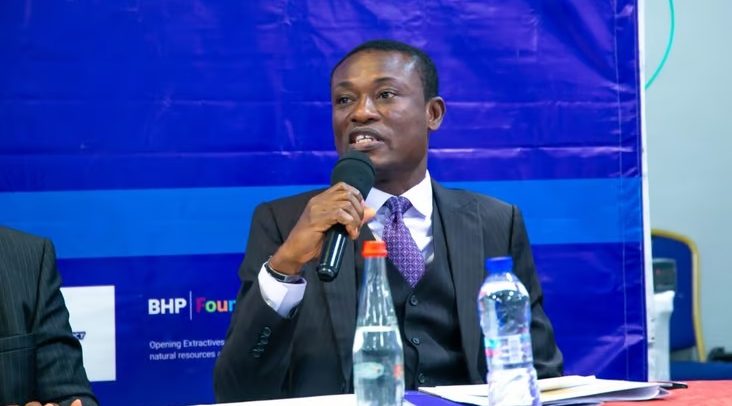
By Korsi DZOKOTO
The phenomenon of offshore banking has become a global issue, with numerous individuals and entities relocating their finances and investments to foreign jurisdictions. While many of these moves are driven by legitimate aims to reduce taxes and protect assets, there is a darker side: corrupt politicians using these channels to hide their illicit gains. In Ghana, this practice among politicians has sparked serious concerns about the nation’s governance and economic health.
Highlighting this issue, Ghana was recently ranked the 9th most financially secretive country in Africa by the Tax Justice Network’s Financial Secrecy Index (FSI) 2022. The FSI, which combines qualitative and quantitative data, assesses each jurisdiction’s role in perpetuating financial secrecy, revealing the extent of opacity, compliance with international standards, and participation in information sharing.
The Allure of Offshore Banking
Offshore banking offers a multitude of benefits, which explains its widespread appeal. These benefits range from legal tax reduction and asset protection to accessing a wider array of investment opportunities. For many, the move offshore is driven by legitimate financial strategies, seeking to optimize wealth and secure financial stability. However, for corrupt politicians, the allure lies in the ability to conceal illegal gains and evade domestic scrutiny.
Legal Tax Reduction and Asset Protection
One of the primary motivations for going offshore is the potential for legal tax reduction. Many offshore jurisdictions offer favourable tax regimes that significantly lower the tax burden compared to the politician’s home country. Additionally, offshore banking provides robust asset protection mechanisms, shielding assets from potential legal actions and domestic creditors.
Diversified Investment Opportunities
Offshore accounts provide access to a diverse range of investment opportunities that may not be available domestically. These opportunities can include high-yield investment products, real estate, and other financial instruments that offer greater returns and security. For savvy investors, including those with questionable ethics, these options present an enticing proposition to grow their wealth exponentially.
Privacy and Confidentiality
Offshore banking is synonymous with privacy and confidentiality. Many jurisdictions have stringent privacy laws that protect account holders’ identities, making it challenging for domestic authorities to trace illicit funds. This confidentiality is particularly attractive to corrupt politicians who seek to hide their illegal proceeds from public and legal scrutiny.
The Ghanaian Context
In Ghana, the issue of politicians moving their illicit funds offshore has become a pressing concern. This practice undermines the country’s governance, erodes public trust, and hampers economic development. The motivations for these politicians align with broader reasons for going offshore but are primarily driven by a desire to evade justice and maintain their ill-gotten wealth.
Over the past eight years, Ghana has borrowed billions of dollars from both international lenders and Foreign Direct Investments (FDIs). Despite this influx of funds, the country still faces a severe shortage of foreign exchange (forex). This shortage puts immense pressure on the Ghanaian economy and forces the government to rely on the International Monetary Fund (IMF) to stabilize the cedi, the national currency.
The persistent forex shortage in Ghana’s economy can be attributed to several factors. Firstly, the illicit transfer of funds offshore by corrupt politicians depletes the country’s foreign reserves. These politicians often convert their illegal earnings into foreign currencies and deposit them in offshore accounts, further exacerbating the forex scarcity. As a result, there is less foreign currency available to support critical imports, pay off international debts, and stabilize the local currency.
Corruption and Evasion of Justice
Ghana, like many other countries, grapples with corruption at various levels of government. Corrupt politicians exploit their positions to amass significant wealth through illegal means. Moving these funds offshore allows them to evade domestic law enforcement and continue their activities with impunity. The lack of transparency and accountability in offshore jurisdictions creates a safe haven for these individuals.
Impact on Economic Development
Capital flight, driven by the illicit transfer of funds offshore, poses a significant threat to Ghana’s economic development. When substantial amounts of money leave the country, it reduces the capital available for domestic investment. This hinders economic growth and development, as there is less funding for local businesses, infrastructure projects, and public services. The resultant economic stagnation can increase unemployment rates and widen the gap between the rich and the poor.
Erosion of Public Trust
The knowledge that politicians are stashing illicit funds offshore erodes public trust in the government. Citizens become disillusioned with the political system, perceiving it as inherently corrupt and self-serving. This erosion of trust can lead to political instability and social unrest, further destabilizing the nation.
The Global Crackdown on Offshore Banking
Globally, there is a concerted effort to clamp down on the misuse of offshore banking. Governments and international organizations are implementing measures to enhance transparency, combat tax evasion, and repatriate illicit funds. However, these efforts face significant challenges due to the complex and secretive nature of offshore banking.
International Cooperation and Legislation
Countries are increasingly cooperating to tackle the issue of offshore banking. International bodies like the Organisation for Economic Co-operation and Development (OECD) and the Financial Action Task Force (FATF) are spearheading initiatives to promote transparency and combat financial crimes. Key measures include the Common Reporting Standard (CRS) and the Anti-Money Laundering (AML) directives, which mandate the exchange of financial information among countries.
Technological Advancements
Technological advancements are playing a crucial role in the fight against illicit offshore banking. Enhanced data analytics, artificial intelligence (AI), and blockchain technology are being leveraged to trace and track financial transactions across borders. These tools aid in identifying suspicious activities and uncovering hidden assets, thereby assisting law enforcement in their efforts to prosecute offenders.
Data analytics has revolutionized the way financial transactions are monitored and analysed. By utilizing advanced algorithms, large volumes of financial data can be processed quickly and efficiently. This allows for the identification of unusual patterns and anomalies that may indicate illicit activity.
Challenges and Limitations
Despite the progress, significant challenges remain. Offshore jurisdictions are often resistant to change, and their legal frameworks can be manipulated to maintain secrecy. Additionally, the political will to tackle these issues varies among countries, with some prioritizing economic gains over ethical considerations. The complexity of global financial systems also poses a significant barrier to effective regulation and enforcement.
Conclusion
The trend of offshore banking among corrupt Ghanaian politicians highlights a broader issue of financial misconduct and the challenges of governance in the country. While offshore banking offers legitimate benefits for legal tax reduction and asset protection, its misuse by corrupt individuals undermines economic development and erodes public trust. Addressing this issue requires a multifaceted approach, involving international cooperation, technological advancements, and strong political will. Only through concerted efforts can Ghana hope to curb the illicit flow of funds and promote a more transparent and accountable governance system.
The post FEATURE: Offshore banking; a haven for corrupt politicians appeared first on The Business & Financial Times.
Read Full Story





















Facebook
Twitter
Pinterest
Instagram
Google+
YouTube
LinkedIn
RSS